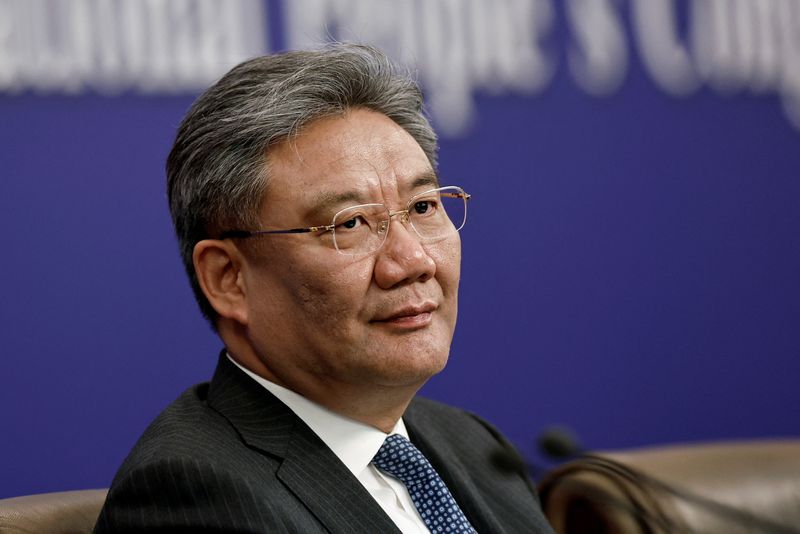BEIJING (Reuters) -Chinese Commerce Minister Wang Wentao and his U.S. counterpart will hold a call in the near future on trade and economic ties, China's state-run Xinhua news agency reported on Tuesday, citing people familiar with the matter.
They will exchange views on bilateral economic and trade relations and key issues of mutual concern, including restrictions on electric vehicles (EVs), Xinhua reported.
During a two-day working group meeting in Beijing last month with a U.S. delegation, Chinese officials expressed "grave" concerns about additional U.S. tariffs, investment restrictions, and Russia-related sanctions.
A new round of U.S. tariffs on $18 billion of Chinese goods including EVs, EV batteries and solar panels took effect in late September, with lithium-ion batteries bearing the brunt of the levies by value. The U.S. imports nearly zero Chinese EVs.
The tariffs were imposed after a review by the Office of the U.S. Trade Representative of levies that had been previously introduced by former U.S. President Donald Trump in 2018.
The Biden administration said the tariffs were aimed at bolstering protections for strategic domestic industries from China's state-driven excess production capacity. Beijing has vowed retaliation.
China has long accused the United States of containing its economic development and suppressing its technological advancement out of what it says is sheer paranoia. But Beijing has remained open to talks and negotiations, especially given the prospect of Trump returning to the White House.
Trump has said he would consider imposing more tariffs of 60% or more on Chinese goods should he be elected as president again in November.
"In state-to-state relations, the No.1 and overarching question is: are we rivals, or partners?" said Xie Feng, China's ambassador to the United States, at a reception on Monday, the eve of China's National Day.
"China's success does not have to mean a failure of the United States," Xie added.

China's relations with the European Union have also come under renewed strain as Brussels accuses Beijing of flooding the European market with EVs that it says are backed by unfair Chinese industrial policies and subsidies.
The EU is slated to cast a vote on introducing definitive levies on China-made EVs this month.